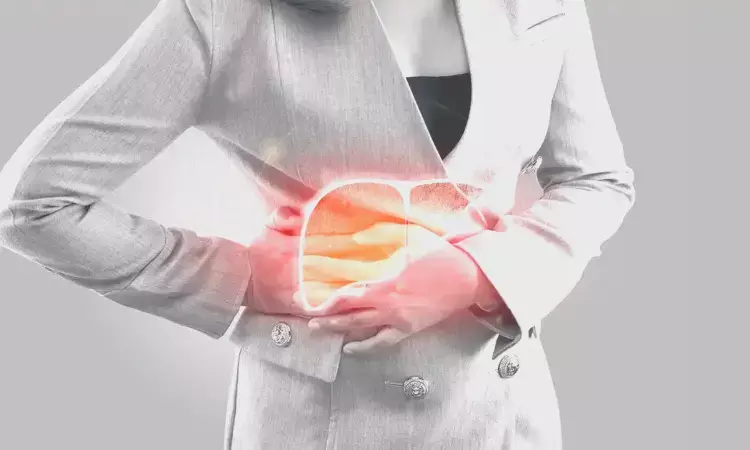- Home
- Medical news & Guidelines
- Anesthesiology
- Cardiology and CTVS
- Critical Care
- Dentistry
- Dermatology
- Diabetes and Endocrinology
- ENT
- Gastroenterology
- Medicine
- Nephrology
- Neurology
- Obstretics-Gynaecology
- Oncology
- Ophthalmology
- Orthopaedics
- Pediatrics-Neonatology
- Psychiatry
- Pulmonology
- Radiology
- Surgery
- Urology
- Laboratory Medicine
- Diet
- Nursing
- Paramedical
- Physiotherapy
- Health news
- Fact Check
- Bone Health Fact Check
- Brain Health Fact Check
- Cancer Related Fact Check
- Child Care Fact Check
- Dental and oral health fact check
- Diabetes and metabolic health fact check
- Diet and Nutrition Fact Check
- Eye and ENT Care Fact Check
- Fitness fact check
- Gut health fact check
- Heart health fact check
- Kidney health fact check
- Medical education fact check
- Men's health fact check
- Respiratory fact check
- Skin and hair care fact check
- Vaccine and Immunization fact check
- Women's health fact check
- AYUSH
- State News
- Andaman and Nicobar Islands
- Andhra Pradesh
- Arunachal Pradesh
- Assam
- Bihar
- Chandigarh
- Chattisgarh
- Dadra and Nagar Haveli
- Daman and Diu
- Delhi
- Goa
- Gujarat
- Haryana
- Himachal Pradesh
- Jammu & Kashmir
- Jharkhand
- Karnataka
- Kerala
- Ladakh
- Lakshadweep
- Madhya Pradesh
- Maharashtra
- Manipur
- Meghalaya
- Mizoram
- Nagaland
- Odisha
- Puducherry
- Punjab
- Rajasthan
- Sikkim
- Tamil Nadu
- Telangana
- Tripura
- Uttar Pradesh
- Uttrakhand
- West Bengal
- Medical Education
- Industry
Diet with adequate copper and iron intake improves MAFLD management

A recent study by Journal of Nutritional Science found the intricate relationship between nutrition and health, the results uncovered compelling evidence linking micronutrient intake to Metabolic-associated Fatty Liver Disease (MAFLD).
The study was conducted as a cross-sectional analysis based on data from the National Health and Nutrition Examination Survey (NHANES) and aimed to explore the association between specific micronutrients and MAFLD, a term introduced in 2020 to replace Non-Alcoholic Fatty Liver Disease (NAFLD).
The research included 5,976 participants and revealed intriguing insights into the impact of copper and iron intake on MAFLD. After meticulous adjustment for potential confounding factors, the results indicated a substantial association between higher copper intake and a reduced risk of MAFLD. Also, participants in quartiles Q3 and Q4 for copper intake demonstrated significantly lower odds of MAFLD, with odds ratios of 0.68 (95% CI 0.50, 0.93) and 0.60 (95% CI 0.45, 0.80) respectively.
The study highlighted the importance of iron intake in the prevention of MAFLD. Those in quartiles Q2 and Q3 for iron consumption exhibited lower odds of MAFLD, with odds ratios of 0.64 (95% CI 0.45, 0.92) and 0.61 (95% CI 0.41, 0.91) respectively.
These findings suggest that a diet rich in copper and an adequate intake of iron may play a pivotal role in managing MAFLD, providing valuable guidance for individuals seeking preventive measures against this prevalent metabolic disorder. This research contributes significantly to our understanding of the role nutrition can play in maintaining liver health. Further exploration regarding this may pave the way for targeted dietary interventions and customized approaches in the management of MAFLD, offering hope for a healthier future.
Source:
Hou, J., Wu, Q., & Zhang, L. (2023). Association between micronutrients intake and metabolic-associated fatty liver disease: a cross-sectional study based on the National Health and Nutrition Examination Survey. In Journal of Nutritional Science (Vol. 12). Cambridge University Press (CUP). https://doi.org/10.1017/jns.2023.99
Neuroscience Masters graduate
Jacinthlyn Sylvia, a Neuroscience Master's graduate from Chennai has worked extensively in deciphering the neurobiology of cognition and motor control in aging. She also has spread-out exposure to Neurosurgery from her Bachelor’s. She is currently involved in active Neuro-Oncology research. She is an upcoming neuroscientist with a fiery passion for writing. Her news cover at Medical Dialogues feature recent discoveries and updates from the healthcare and biomedical research fields. She can be reached at editorial@medicaldialogues.in
Dr Kamal Kant Kohli-MBBS, DTCD- a chest specialist with more than 30 years of practice and a flair for writing clinical articles, Dr Kamal Kant Kohli joined Medical Dialogues as a Chief Editor of Medical News. Besides writing articles, as an editor, he proofreads and verifies all the medical content published on Medical Dialogues including those coming from journals, studies,medical conferences,guidelines etc. Email: drkohli@medicaldialogues.in. Contact no. 011-43720751


